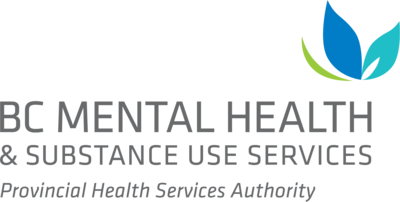
The BC Mental Health and Substance Use Services (BCMHSUS) Research Institute is a leading research organization based in British Columbia, focused on advancing knowledge and improving services related to mental health and substance use. BCMHSUS is a specialized health service within the Provincial Health Services Authority (PHSA), providing a comprehensive array of programs for individuals with complex needs relating to their mental health, substance use, developmental disability, and those involved in the criminal justice system.
Specialized, province-wide services fall into three areas:
- Provincial, specialized services for adults with complex mental health and substance use issues, and those with developmental disability and mental health issues. Our Adult Mental Health and Substance Use program includes the Red Fish Healing Centre, Heartwood Centre for Women, and the Provincial Assessment Centre.
- Forensic Psychiatric Services for people with mental health and substance use challenges for those: who have been remanded by the court for fitness assessment or treatment further to being designated as Not Criminally Responsible due to a Mental Disorder (NCRMD); who have been transferred for involuntary treatment from the provincial correctional system; or who are under community orders to attend treatment. FPS includes a 190-bed secure hospital and seven regional clinics.
- Health, mental health, and substance use services for people who are incarcerated in provincial correctional facilities. Correctional Health Services provides health care services to approximately 18,000 people annually across ten provincial correctional centres across BC.
Funding interests
Award Types
Research Trainee
Research Interests
The trainee or fellow must be affiliated with UBC or SFU and have a primary supervisor who has a primary affiliation as an investigator of the BCMHSUS Research Institute.
- Learning health systems-approaches to evaluating programs and reducing health inequities and improving outcomes among people with complex needs and those involved in the criminal justice system
- Use of epidemiological methods, data science, and health economics approaches to evaluating clinical programs (e.g., Correctional Health Services).
- Mixed methods research in collaboration with people with lived/living experience of mental health, substance use and/or involvement with the criminal justice system.
- Quality of care and patient engagement initiatives
- Best and promising practices for people with complex concurrent disorders, acquired brain injury, and – Indigenous peoples
- Understanding relapse to inform improvements in care for people with addictions and concurrent mental health and substance use disorders
Key Words
- Mental health
- substance use
- correctional health services
- data science
- forensic mental health
- complex needs
- concurrent disorders
- developmental disabilities
- acquired brain injury
- hypoxic brain injury
- determinants of health
- Indigenous
- toxic drug events
Awards
2025
Recipient
Mallory FlynnAward type
Research Trainee award
Project title
Heterogeneity of risk of substance-related harms in British Columbians - using machine learning and statistical models to predict individual overdose risk with administrative healthcare data

